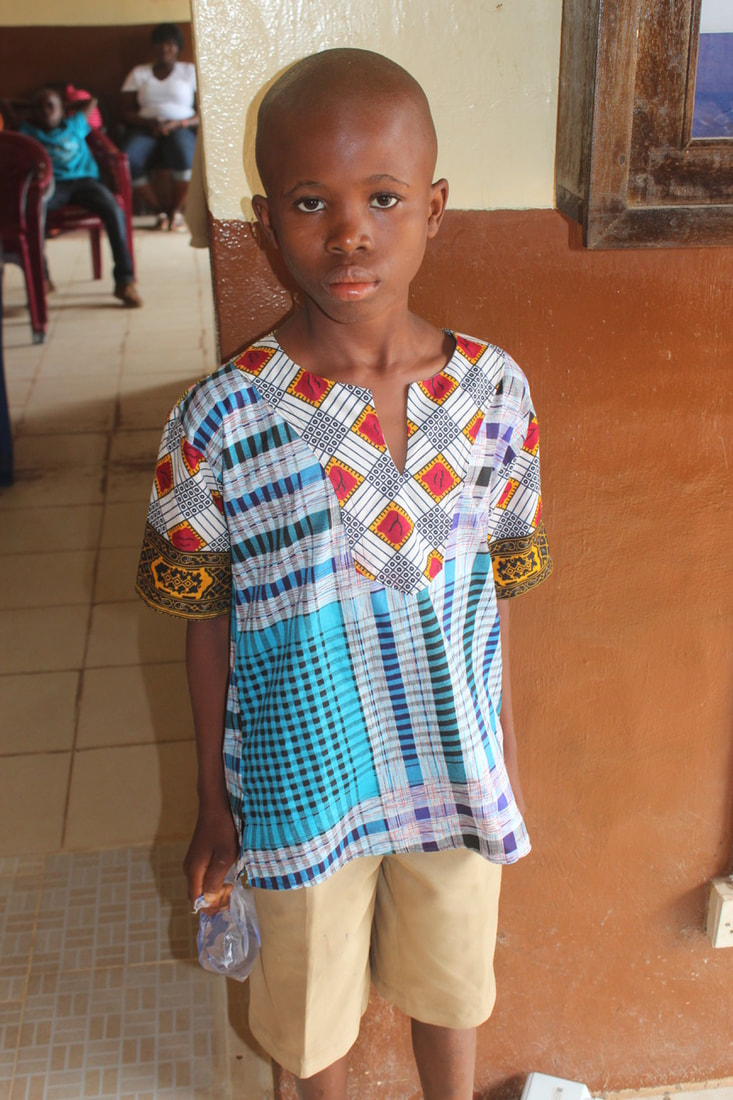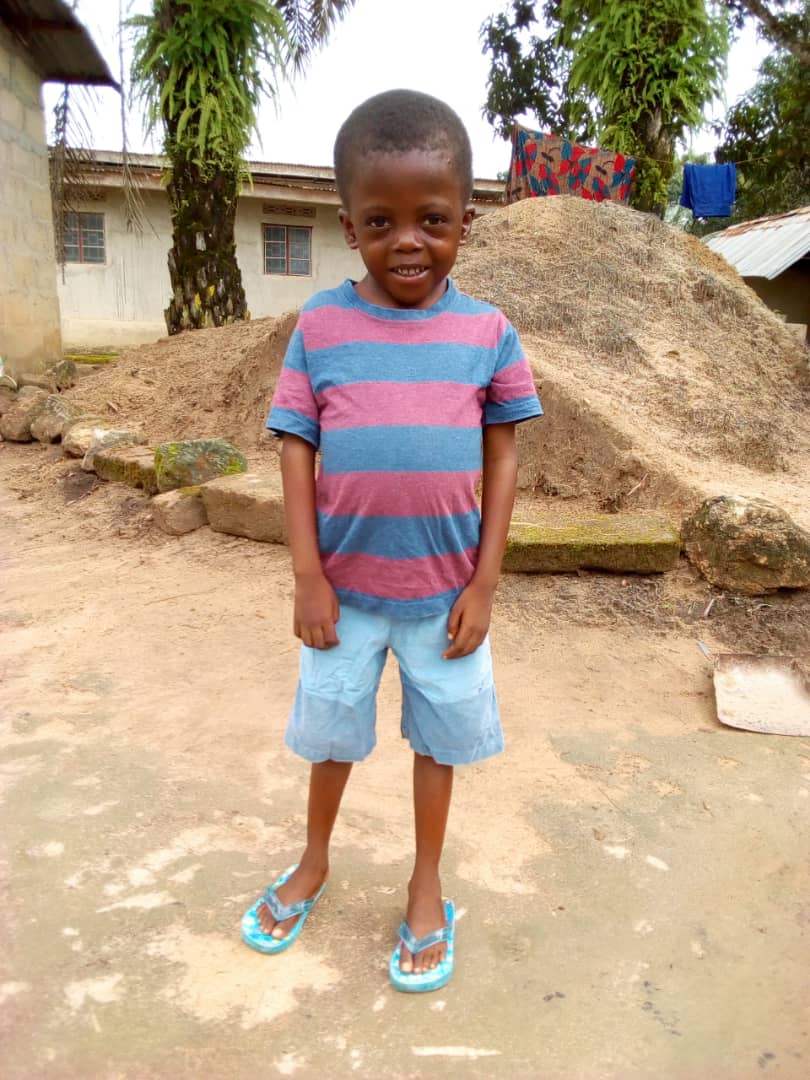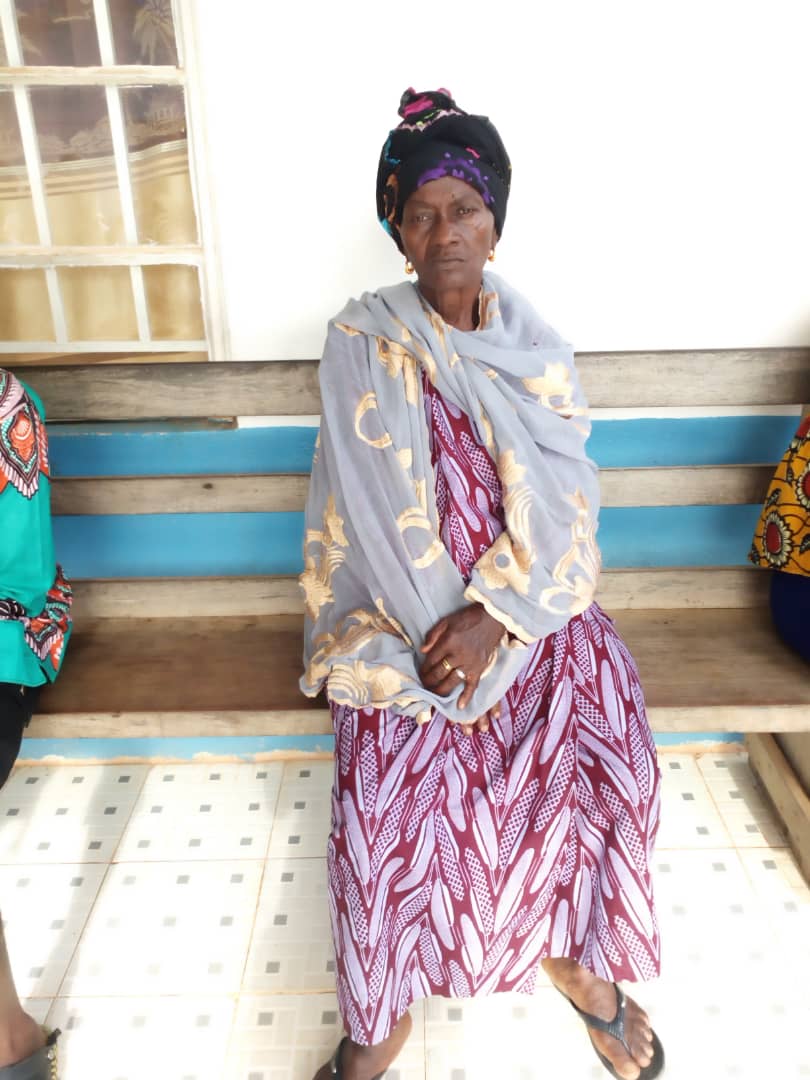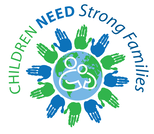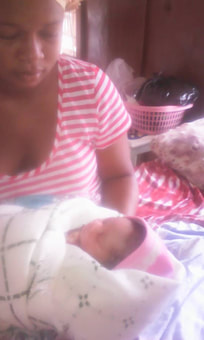 When Fatmata, age 22, came to her appointment at Mercy Hospital's prenatal clinic, she had a very high fever and was vomiting. Diagnosed with severe malaria, she was admitted and treated with anti-malarial injections. By the end of the day, Fatmata was much improved and was released from care. Pregnant women are at high risk of dying from the complications of severe malaria. Malaria may also cause spontaneous abortion, premature delivery, or stillbirth, and is responsible for about one third of preventable low birth weight babies. Shortly after being discharged, Fatmata returned to the hospital in labor and delivered a healthy baby girl. "I especially appreciate the maternity staff for their hard work," Fatmata said. The patient says she chose Mercy because she had attended the hospital's prenatal clinic for her previous pregnancies. Mariatu, age 37, collapsed into unconsciousness and was brought to the hospital by her family, where she was diagnosed with severe anemia caused by malaria. She received a blood transfusion of two whole units and antimalarial drugs. Mariatu made a full recovery and was released. "Words cannot express how happy I am," Mariatu says. "I really appreciate the team work."
Sierra Leone has one of the highest rates of malaria infection in the world. The country's entire population is at risk of the disease and it is one of the leading causes of death and illness. Young children are particularly susceptible to infection, illness and death from malaria, which contributes to close to twenty percent of child mortality. The Ministry of Health and Sanitation has committed to reducing new cases of the disease up to 40 percent by 2020, which will require dedicated action from government, partners, health workers, and communities.
0 Comments
Since it is rainy season, malaria rates are higher than usual. Eleven-year-old Steven came in to Mercy with malaria and was very weak and restless. Since receiving treatment, he is feeling much better. His father, Paul Ngaojia says, “Our family is thanking God for Mercy Hospital. They have done so much for us."
Five-year-old Jerome was desperately sick when his mother brought him to Mercy suffering from a range of symptoms including severe anemia, high fever, vomiting and coughing. The Mercy staff diagnosed Jerome with malaria and an acute respiratory infection and he was admitted for treatment. After three days of intensive care and a blood transfusion for anemia, Jerome was stable enough to go home.
His mother was so happy to learn that the treatment was entirely free, as the family had no money to pay, and effusively thanked the staff for their kindness and compassion. “I am very grateful for the services given to my son. I want to thank the CHO and nurses that helped him when he was sick.” 65-year old Mamie Moijuel was coughing up blood when her family brought her to Mercy for treatment. Mamie was diagnosed with tuberculoid leprosy, a chronic infectious disease caused by bacteria that is endemic in poor rural areas of Africa. Tuberculoid leprosy is a mild, less severe and less contagious form of leprosy acquired through close contact. Mamie was put on a regimen of strong antibiotics to treat her illness. The antibiotic treatment took several months, but she now tests negative for TB and her condition has improved markedly. Mamie says, “I thank God for the Mercy staff. They know how to talk to patients nicely and to make you feel better even when you are very sick. They are helping people a lot." |
Follow us on social media
Archive
July 2024
Click the button to read heartfelt tributes to a beloved Bishop, co- founder of our mission!
Post
|
Helping Children Worldwide is a 501 (c) 3 nonprofit organization | 703-793-9521 | [email protected]
©2017 - 2021 Helping Children Worldwide
All donations in the United States are tax-deductible in full or part. | Donor and Privacy Policy
©2017 - 2021 Helping Children Worldwide
All donations in the United States are tax-deductible in full or part. | Donor and Privacy Policy

